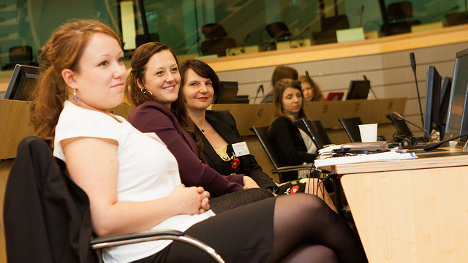The country's participation in Erasmus, which allows millions of students across Europe to spend time studying in another European country, was blocked by the EU following Switzerland's February 9th anti-immigration vote, which counters the bilateral agreement on the free movement of people.
The funds released by Bern, which equate to the amount Switzerland would have contributed to the Erasmus programme for 2014-15, will allow Swiss students who were intending to go on an exchange to do so, with grants given directly to students.
The majority of the funds will be dedicated to the practical issues surrounding student mobility, including grants for foreign students coming to Switzerland.
Around 11 percent of the budget will be given over to particular projects considered by the federal authorities to "meet the education policy objectives set by the Confederation and the cantons", according to a government statement.
This temporary solution aims to provide as much continuity as possible for Swiss students, while the government lobbies for Switzerland to regain its associate status with Erasmus.
Bern is also working on interim solutions to the EU's blocking of Switzerland's participation in European culture and scientific research projects.



 Please whitelist us to continue reading.
Please whitelist us to continue reading.
Member comments